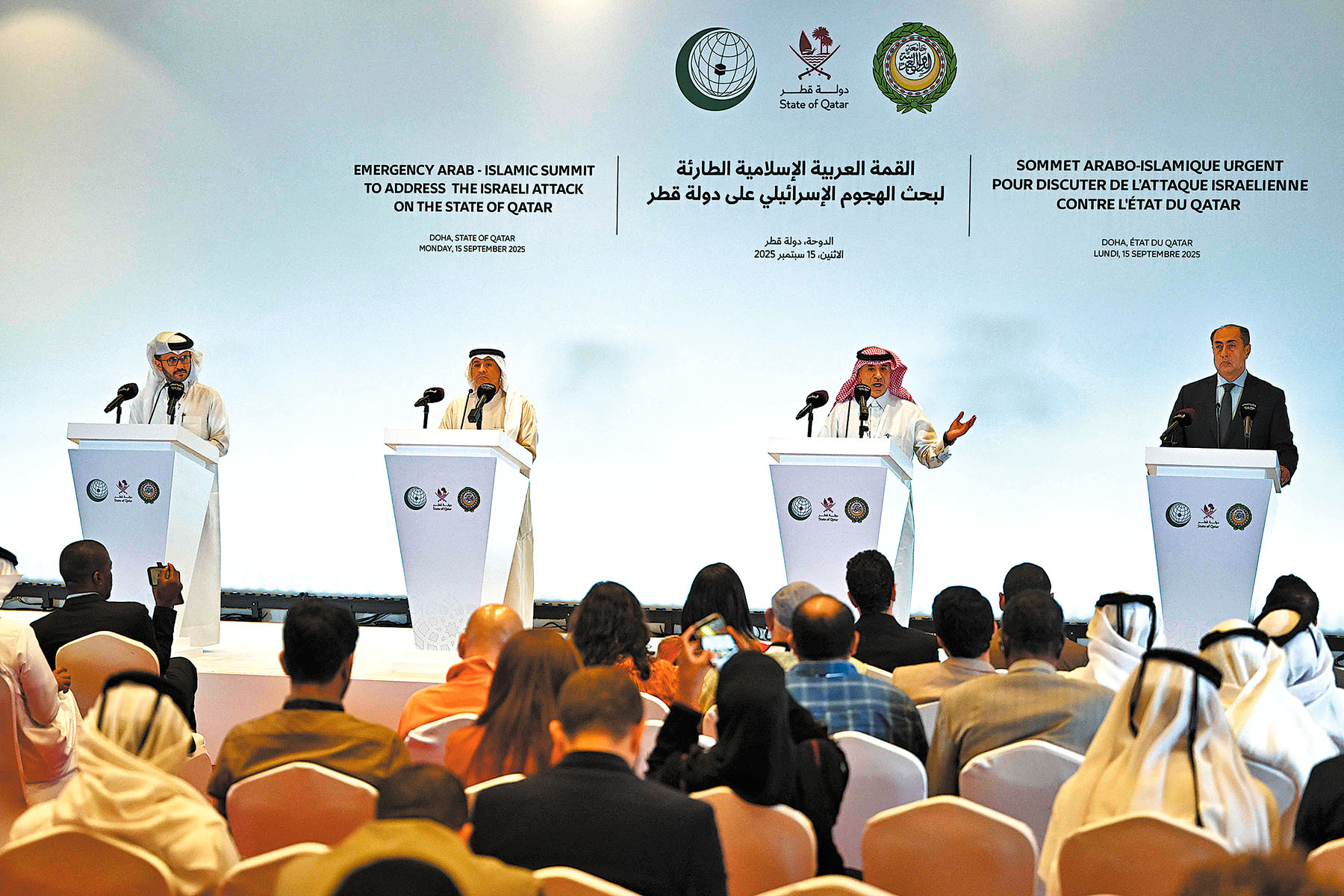Arab and Islamic states slam strikes on Qatar, urge action against Tel Aviv

Israel launched an intensive ground offensive into Gaza City on Sept 16 as it gained “unwavering support” from the United States to crush Hamas, defying calls from an emergency Arab-Islamic summit in Doha on Sept 15, which strongly condemned recent Israeli attacks on Qatar-hosted Hamas officials heading for Gaza ceasefire talks.
“Gaza is burning,” Israeli Defense Minister Israel Katz said Sept 16, adding that the military was striking “with an iron fist at the terrorist infrastructure”.
“We have launched a significant operation in Gaza,” Israeli Prime Minister Benjamin Netanyahu confirmed later at a court in Tel Aviv.
Local media reported Israeli tanks had entered Gaza City following massive airstrikes, and residents said Israeli bombardment had increased dramatically over the past two days. Naval vessels have joined in the operation, leaving more civilians dead and injured.
The new Israeli aggression came the day after the Arab League and the Organization of Islamic Cooperation held a joint emergency summit in Doha, which brought together nearly 60 countries and sought to take firm action after Israel’s attack last week.
The final communique urged “all states to take all possible legal and effective measures to prevent Israel from continuing its actions against the Palestinian people”, including “reviewing diplomatic and economic relations with it, and initiating legal proceedings against it”.
It also urged member states to “coordinate efforts aimed at suspending Israel’s membership in the United Nations”.
The leaders reiterated support for Palestinian statehood based on 1967 borders with East Jerusalem as its capital, welcomed an upcoming UN conference on the implementation of the two-state solution in New York, and praised Qatar’s role in mediation, humanitarian aid, and fostering Arab and Islamic unity.
The host country’s emir, Sheikh Tamim bin Hamad Al Thani, said the summit sends a clear message in the face of Israel’s “state terrorism”.
“Whoever works diligently and systematically to assassinate the party with whom he is negotiating, intends to thwart the negotiations,” the emir said, adding that Netanyahu is dreaming of making the Arab region “an Israeli sphere of influence”.
Talking of Israeli strikes against Doha, Iranian President Masoud Pezeshkian said, “Tomorrow, it could be the turn of any Arab or Islamic capital.” Iran fought back Israeli and US aggression for 12 days in June before securing a ceasefire.
The Gulf Cooperation Council — which includes Qatar, Saudi Arabia, and the United Arab Emirates — also met on the sidelines of the summit, urging the US to use its “leverage and influence” to rein in Israel, said GCC Secretary-General Jasem Mohamed Al-Budaiwi.
Consultations were underway among the bloc’s military bodies to build up “Gulf deterrent capabilities”, with a meeting of the group’s Unified Military Command set to take place soon in Doha, said Majed Mohammed Al-Ansari, Qatar’s Foreign Ministry spokesman.
During a joint news conference with Netanyahu in Jerusalem on Sept 15, US Secretary of State Marco Rubio backed Israel’s new offensive on Gaza City and the goal of eradicating Hamas.
“You can count on our unwavering support,” he told Netanyahu.
In Geneva, 78 countries delivered a joint statement at the UN Human Rights Council on Sept 16, denouncing Israel’s recent military assault on Doha.
The statement was read by South Africa’s Permanent Representative to the UN in Geneva, Ambassador Mxolisi Nkosi, during an urgent debate held as part of the Council’s 60th session, following Israel’s airstrikes on Doha on Sept 9.
The countries expressed deep concern over the unprecedented targeting of a neutral state engaged in peace mediation, warning that such acts pose a serious threat to international peace and security.
Attacks on mediating nations do not only set a dangerous precedent that could discourage neutral actors from contributing to conflict resolution, but also obstruct peaceful settlement efforts and undermine the promotion and protection of human rights, the statement read.
The 78 countries further condemned all forms of aggression, coercion, or threats against neutral or mediating states engaged in good offices between conflicting parties. They reaffirmed that such actions constitute violations of international law, particularly the principles of sovereignty, non-intervention, and peaceful resolution of disputes.
Jan Yumul in Hong Kong and agencies contributed to this story.
Contact the writer at cuihaipei@chinadaily.com.cn


